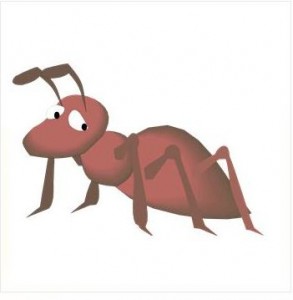 Once an ant discovered a hill made of sugar. It soon scurried to the top of the hill and ate some sugar. One grain filled its stomach. Taking another grain on its back it started homeward. On its way down it thought, “Next time I shall carry home the whole hill.”
Once an ant discovered a hill made of sugar. It soon scurried to the top of the hill and ate some sugar. One grain filled its stomach. Taking another grain on its back it started homeward. On its way down it thought, “Next time I shall carry home the whole hill.”
Are we like the ant? Do we think we can grasp the entire nature of reality using thought and language? It is true that we can make a small representation of reality in our mind using thoughts and language, but are we so foolish to think that we can carry the entire hill of reality using thought and language?
Isaac Newton was one of the greatest scientists who ever lived. His work and discoveries were so powerful that at one time scientists despaired that nothing else would be left to discover! Yet Newton himself was not so impressed. Here is what he said, “I was like a boy playing on the sea-shore, and diverting myself now and then finding a smoother pebble or a prettier shell than ordinary, whilst the great ocean of truth lay all undiscovered before me.”
The greatest amongst scientists and philosophers have always insisted that our brain is capable of only processing a small slice of reality. Consequently we are able to have thoughts and language pertaining to only this small slice. To think that we can logically think and understand reality is much like the ant thinking “I will carry the whole hill on my back next time!”
Many thousands of years ago a man in ancient India had two sons. He sent them to a preceptor to learn the knowledge of Brahman. After a few years they returned from their preceptor’s house and bowed low before their father. Wanting to measure the depth of their knowledge of Brahman, he first questioned the older of the two boys. “My child,’” he said, “You have studied all the scriptures. Now tell me, what is the nature of Brahman?” The boy began to explain Brahman by reciting various texts from different scriptures. The father did not say anything. Then he asked the younger son the same question. But the boy remained silent and stood with eyes cast down. No word escaped his lips. The father was pleased and said to him, “My child, you have understood a little of Brahman. That it cannot be expressed in words.”
Our brains have evolved not for the purpose of understanding reality or comprehending the true nature of things. Our brains have evolved to allow us to survive in a highly competitive environment where only the fittest survive. This means that our brains are very specialized instruments geared towards a very specific task. While it is true that our brain has a wider grasp of reality than most other living creatures on earth, yet this still does not allow us to escape from the very severe limitation of the nature of our brain.
Too many of us seem to blissfully pass through life with a simple assumption that the reality being projected inside our heads is the complete description of what is out there. This assumption causes many of us to lead our lives in a way we would not have chosen to if we knew better. Sometimes this can lead to undesirable results. After all we must be cognizant of Marke Twain’s words, “It aint’t what you don’t know that gets you into trouble. It’s what you know for sure that just aint’s so.”
The parable of ant and the story of the man and his two sons have been taken from the “Gospel Of Sri Ramkrishna“.

Pingback: How to Catch a Monkey | DARREN MAIN